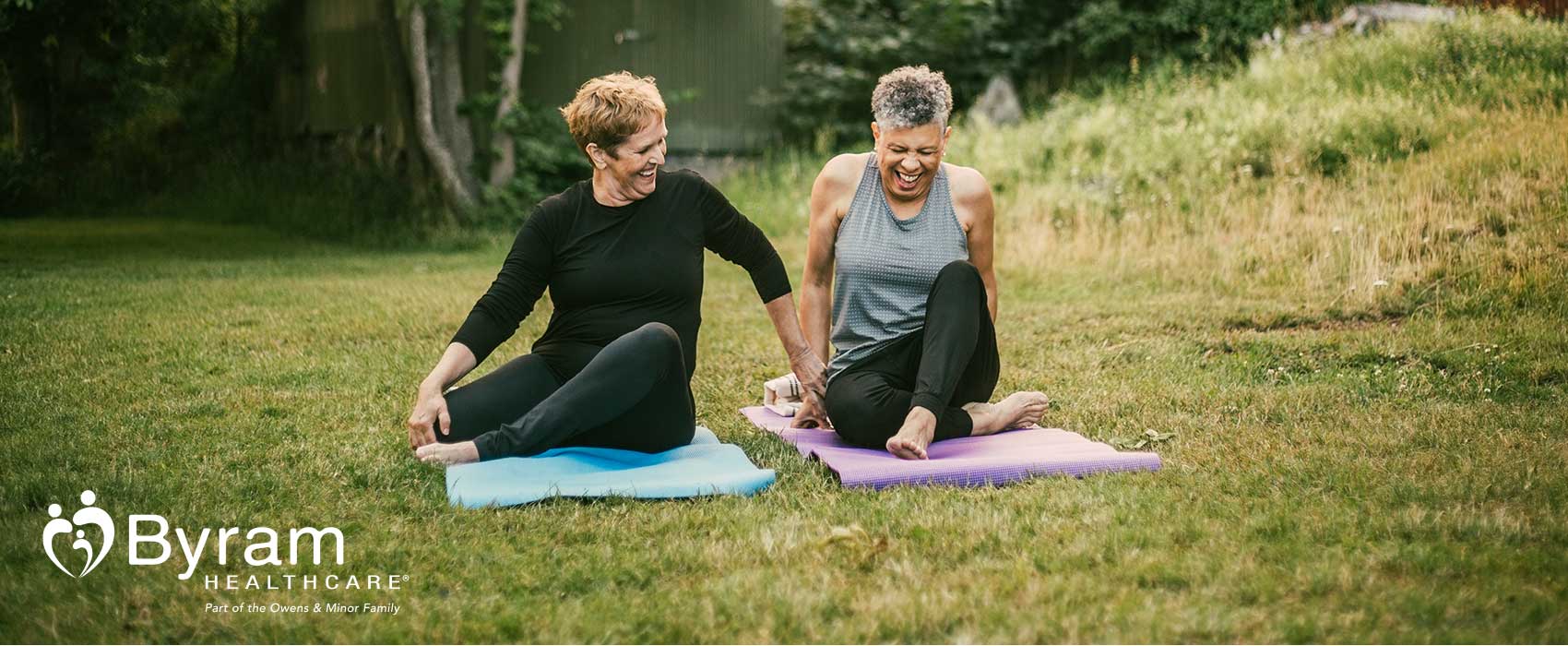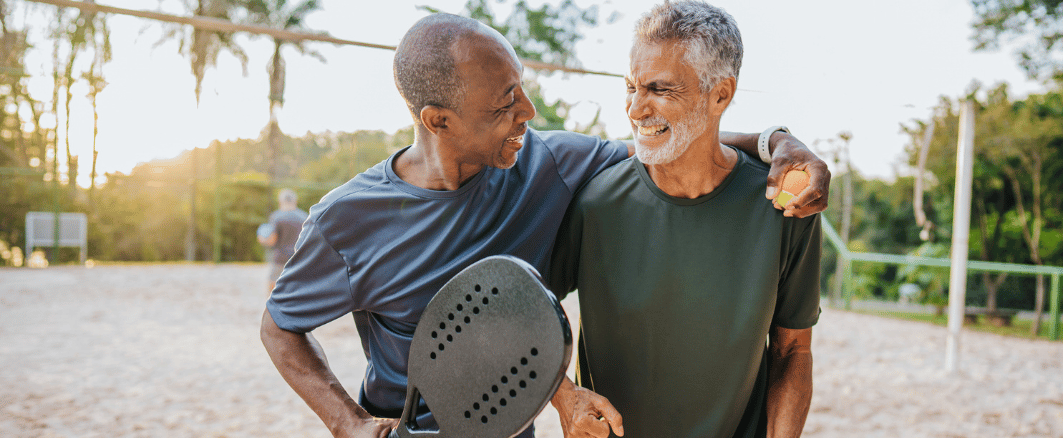
Maintaining optimal bladder health is crucial for overall well-being, yet many people overlook the impact lifestyle choices have on this vital organ. In reality, there are several things that can reduce bladder control, cause bladder irritation, and contribute to a decreased quality of life. Luckily, there are a few simple lifestyle changes you can make to improve your overall health and help prevent bladder problems. Here, we'll go over some steps you can take for better bladder health.
Common Bladder Issues
The bladder is a balloon-shaped organ that's part of your urinary system. It's hollow and has a muscular inner lining, which allows it to expand as your kidneys filter waste and urine is produced. Your bladder can hold up to two cups of urine, at which time the nerve endings send signals to your brain, which produces the urge to urinate. However, several things can affect this system, leading to issues. Some of the most common of these include:
- Urinary tract infection (UTI)
- Bladder infection
If you experience any symptoms of a bladder condition or inflammation in the urethra, talk to your healthcare provider as soon as possible. While it may be difficult to talk about at first, there are several treatment options available to decrease symptoms and increase your quality of life.
15 Lifestyle Changes to Keep Your Bladder Healthy
While you likely know that drinking enough water is good for your health, several other lifestyle habits can help improve bladder conditions or reduce the risk of them occurring at all. To help improve your bladder health, consider the following tips.
1. Be Strategic with Your Diet
What you eat has a direct impact on the health of your bladder. Therefore, overhauling your diet may help alleviate symptoms of conditions. So, watching what you eat should be one of the first lifestyle changes you make. Some of the best tips for a healthy, bladder-friendly diet include:
- Eat plenty of whole grains and healthy carbs
- Focus on lean proteins
- Eat high-fiber foods
- Add plenty of vegetables to your diet
- Don't skip the fruits
- Be careful about dairy or high-lactose foods
- Snack on nuts
- Incorporate healthy fats
- Cut down on the amount of processed foods
There are also many dietary triggers of bladder problems. If you find that certain foods bother the bladder, eliminating them from your diet can help reduce symptoms.
2. Avoid Things that Irritate the Bladder
Bladder irritants are foods and drinks that can make bladder problems worse. Most commonly, these include things like alcohol, caffeinated beverages (coffee, tea, soda, etc.), spicy foods, tomato-based foods, acidic foods, artificial sweeteners, and more. Everyone is different, so it may be best to keep a diary of what you eat and take note of any changes in urination that follow.
3. Drink Plenty of Water
Contrary to what you might think, drinking water will keep your urinary system healthy. You need to drink enough fluid to help flush out bacteria and other waste products while decreasing the concentration of your urine. In doing so, you can reduce bladder irritation while lowering the risk of UTIs or bladder infections. While the goal is to drink at least 64 ounces of water daily, some people may need to drink more fluids if they exercise, take certain medications, or live in hot, humid climates. Talk to your doctor to better understand your hydration needs.
4. But Don't Over-Hydrate
While you need to stay hydrated, there is a point of diminishing returns. An excessively high intake of fluids can make problems worse, so it's important to work with your doctor to determine the right amount for your needs. Signs that you may be drinking too many fluids include an increased need to urinate, urine leakage, and waking up throughout the night to go to the toilet.
5. Incorporate Pelvic Floor Exercises
The pelvic floor muscles help support your urinary system and reduce the risk of urine leakage. The more you strengthen your bladder muscles, the better control you'll achieve. To strengthen these muscles, practice doing kegel exercises throughout the day. Pelvic floor muscle training can be done at home or on the go without anyone knowing. All you need to do is contract your muscles—as if you were cutting off your urine stream—and hold for a few seconds. Repeat eight to 10 times for three sets.
6. Go to the Bathroom Regularly
Using the bathroom regularly, around every 3 to 4 hours, can also help you optimize bladder health. Even if you don't feel an urgent need to urinate, make it a habit to try. Since holding your urine can weaken pelvic muscles, using the bathroom regularly can also increase your bladder control and reduce the risk of incontinence.
7. Try Bladder Training
After getting into the habit of going to the bathroom regularly, consider trying bladder training. This can be done to increase the time between your initial urge to urinate and when you actually void. Keep a bladder diary to help monitor your progress, and speak with your doctor if you have any questions or concerns.
8. Try to Relax When You Urinate
Surprisingly, putting too much pressure on the bladder when you urinate can make it more difficult to void. Try to practice healthy bathroom habits to become less susceptible to issues. Bladder problems can be more common in women who "hover" above the seat for this reason, so it's best to put down some toilet paper (or sanitize the seat), sit, and relax.
9. Empty Your Bladder Completely
Another habit that can help improve the health of your urinary tract system is to make sure you empty the bladder fully every time you use the toilet. When you don't, you may increase the risk of bladder pain and infection.
10. Practice Good Hygiene
Men and women should both take hygienic practices, but due to anatomical differences, it's even more important for females. When using the bathroom, always wipe front to back and make sure you urinate after sex to help flush out any harmful bacteria.
11. Get Plenty of Physical Activity
Moving your body can help prevent several urologic conditions, so try to get plenty of exercise throughout the week. Ideally, it's best to aim for 150 minutes of moderate-intensity physical activity per week and two days of strength training.
12. Maintain a Healthy Weight
Maintaining a healthy weight is also important for the health of your bladder. Excess weight can contribute to increased pressure on the bladder, which can increase your risk for things like stress urinary incontinence and other issues. If you're struggling with weight loss, talk to your doctor about your options.
13. Avoid Constipation
Straining during bowel movements can exacerbate pelvic floor dysfunction, contributing to urinary issues. To promote regular bowel movements and prevent constipation, ensure your diet includes an adequate amount of fiber from sources like whole grains, fruits, and vegetables. Staying hydrated also aids in maintaining bowel regularity. If constipation persists, consult with your healthcare provider for guidance on lifestyle adjustments and potential interventions.
14. Quit Smoking
Smoking has a detrimental impact on overall health, and its effects extend to bladder function. Cigarette smoke contains harmful chemicals that can irritate the bladder lining and increase the risk of bladder cancer. The best thing you can do for your health is to quit. However, this can be difficult, so it's best to work with your healthcare provider to find a solution that will work for you.
15. Talk to Your Doctor About Medications
Certain medications can also affect how the urinary tract system functions. Some medications may cause side effects affecting frequency or urgency. Your doctor can assess whether adjustments to your medication regimen are necessary and explore alternative options that have minimal impact on your urologic health.
If you experience any bladder pain or bothersome symptoms, contact your doctor as soon as possible. To help you manage your urologic health, Byram Healthcare offers a wide range of urologic products to alleviate symptoms and take control of your life. Browse our urology catalog today and enjoy fast, discreet delivery directly to your doorstep.




